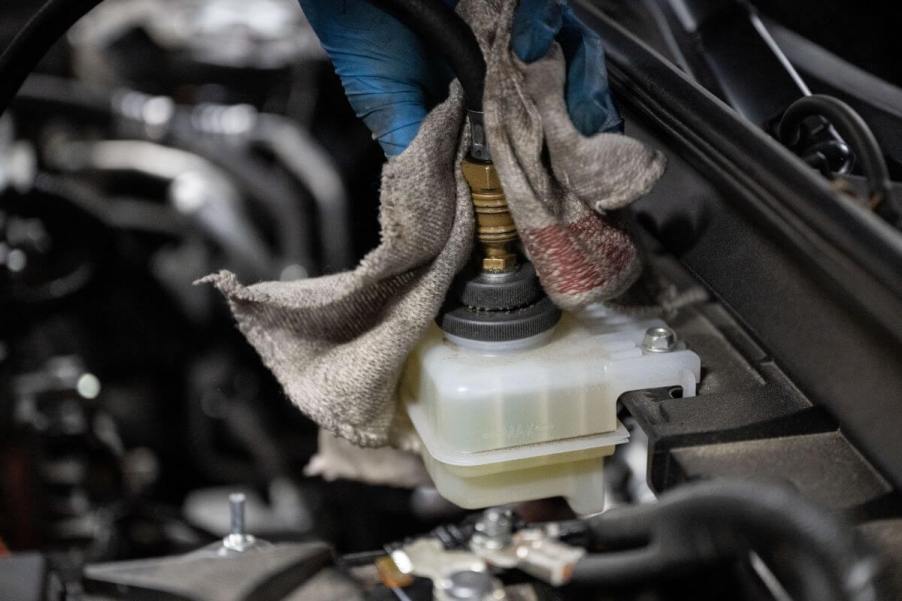
7 Signs of a Broken or Busted Master Cylinder
A car’s brake master cylinder, or simply a master cylinder, is one of your vehicle’s most important maintenance components. Connected to your brake pedal, the master cylinder is the main component of your vehicle’s braking system, sending hydraulic brake fluid to each wheel in your car to brake successfully.
When the internal components of an MC break down, brake fluid can no longer be compressed through the brake lines, leading to some serious safety issues. Do you suspect you may be dealing with a broken or buster MC? Here are seven signs telltale signs that the auto part might be failing.
1. Brake fluid leaks
According to Gordon Automotive, one of the easiest symptoms to spot when it comes to a master cylinder that is starting to fail is a brake fluid leak. These master cylinder brake fluid leaks are easy to find because all you have to do is check under your hood at the firewall. Other than seeing simple brake fluid leaks around the MC, it is good to remember that brake fluid is very corrosive, depending on the additives, and a small leak can lead to an unusual amount of rust on your firewall, another telltale sign of a fluid leak.
2. Brake fluid contaminants
Take a look inside your master cylinder. If your brake fluid is anything but clear or slightly brown with no pollutants, you may be dealing with a failing brake MC. If contaminants are in your brake master cylinder, it can mean it’s letting moisture or foreign pollutants inside.
3. Check engine light (CEL)
An easy sign of a failing master cylinder on modern cars is an illuminated check engine light. This sign may not be valid on older vehicles, but for newer vehicles, an otherwise healthy vehicle with a check engine light may signify an MC issue.
4. Drifting to one side while braking
According to AutoZone, another sign that your brake master cylinder might be failing is uneven brake pressure. If your master cylinder is damaged or worn out, it may apply brake pressure unevenly, causing your vehicle to pull to one side while braking.
5. Grinding noise while applying brakes
This symptom is easily ignored because it doesn’t involve the master cylinder itself. The grinding noise from worn brakes can indicate a failing MC due to uneven braking. If you notice a set of brakes is being prematurely worn when compared to the others, you may have a master cylinder that has uneven brake pressure.
6. A soft or spongy brake pedal
Your braking system should be a closed system, free from any foreign contaminants. When a brake master cylinder breaks down, air may enter your brake lines, leading to a spongy pedal and a lack of fluid pressure. If your brake pedal is no longer firm and is now a little mushy, you may be dealing with a leaky brake MC.
7. Uneven brake wear
Another complaint found with a brake master cylinder that is unevenly applying brake pressure is uneven brake wear. This symptom, which accompanies a grinding or screeching sound, may indicate your MC is no longer applying brake power evenly. With mismatched brake wear, you may end up having to replace other braking equipment at a faster rate.




